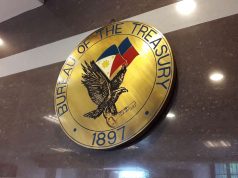Singapore, Malaysia, Vietnam added to US currency watch list
THE US TREASURY added Singapore, Malaysia and Vietnam to a watch list for currency manipulation, putting their foreign-exchange policies under scrutiny.
Singapore made the list because of its large current account surplus and net foreign currency purchases of at least $17 billion in 2018, equivalent to 4.6% of gross domestic product (GDP), according to the Treasury. Malaysia and Vietnam were cited for their bilateral trade and current account surpluses.
Countries with a current-account surplus with the US equivalent to 2% of GDP are now eligible for the list, down from 3%. Other thresholds include persistent intervention in markets for a nation’s currency, and a trade surplus of at least $20 billion. Countries that meet two of the three criteria are placed on the watch list.
Being labeled a currency manipulator doesn’t come with immediate penalties but can rattle financial markets.
The Treasury said Singapore should undertake reforms that will lower its high saving rate and boost low domestic consumption, while striving to ensure that its real exchange rate is in line with economic fundamentals, to help narrow its large and persistent external surpluses.
Singapore’s central bank said in a statement that “it does not manipulate its currency for export advantage.” The Monetary Authority of Singapore uses the exchange rate to ensure price stability and can’t use it to gain an export advantage or achieve a current account surplus, it said.
Malaysia was cited for its bilateral trade surplus with the US of $27 billion last year and its current account surplus of 2.1% of GDP. The Treasury noted Malaysia intervened in foreign currency markets in both directions in the past, and had net sales of foreign exchange equivalent to 3.1% of GDP last year to resist the depreciation of the ringgit.
Malaysia’s central bank said the country supported free and fair trade and didn’t have unfair currency practices, adding that inclusion on the list had no consequences for the country’s economy.
“The ringgit exchange rate is market-determined and is not relied upon for exports competitiveness,” Bank Negara Malaysia said in a statement.
The other two Asian countries on the list are Japan and South Korea. India was removed from the watch group, given that it’s met only one of the three criteria — a “significant” bilateral surplus with the US — for two straight reports.
Vietnam was at risk of meeting all three of the Treasury’s new criteria for the currency manipulator tag. The Treasury excused Vietnam’s recent currency intervention, citing movements in both directions and net foreign exchange purposes that had “reasonable rationale” to rebuild reserves. — Bloomberg



